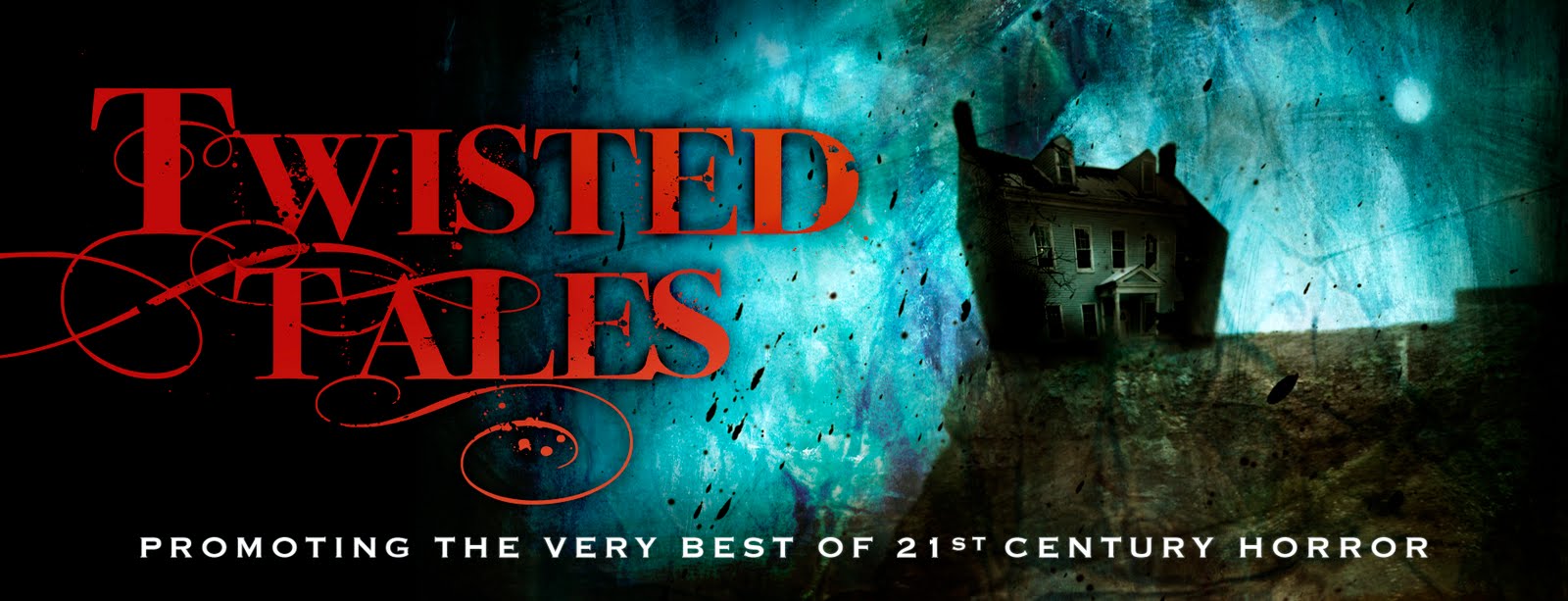 Laird Barron is the author of several books, including the
short story collections The Imago Sequence, Occultation,
and The Beautiful Thing That Awaits Us All, and the novels The
Light Is the Darkness and The Croning. His work has appeared in many
magazines and anthologies. He is a three-time winner of the Shirley Jackson
Award and has also been nominated for the Crawford, World Fantasy,
International Horror Guild, and Locus awards. He resides in upstate New York.
Laird Barron is the author of several books, including the
short story collections The Imago Sequence, Occultation,
and The Beautiful Thing That Awaits Us All, and the novels The
Light Is the Darkness and The Croning. His work has appeared in many
magazines and anthologies. He is a three-time winner of the Shirley Jackson
Award and has also been nominated for the Crawford, World Fantasy,
International Horror Guild, and Locus awards. He resides in upstate New York.
We discussed his latest venture as the first editor of Year’s Best Weird Fiction, a series currently seeking crowdfunding through Indiegogo:
http://www.indiegogo.com/projects/year-s-best-weird-fiction
DM: What attracted you to the weird as a reader?
LB: Thank you for the interview, David.
In my youth I read a lot of Poe, Dunsany, Burroughs, and Howard—the usual suspects. Later, that circle expanded to Smith, Lovecraft, and Jackson. I can’t discount the morbid old volumes of world fairytales with the sinister illustrations illuminating such odd, bizarre stories. In those days, my family lived in a remote area of Alaska. We were surrounded by forests and rivers. Geography defined our existence. The wilderness is a component of a certain strain of weird tale: Blackwood’s 'The Wendigo' and 'The Willows', and Lovecraft’s 'The Whisperer in Darkness' being exemplars. I identified with that as a child. It served as a gateway. Now, I’m as likely to become lost in the urban phantasms of Joel Lane or Robert Aickman as I am anything else.
DM: What opportunities does it offer to you as a writer?
LB: Any sort of writing represents the opportunity of expression. Weird fiction, as with all fiction, is a lens to view reality. It’s a filter.
DM: Do you think that, in the wake of the New Weird and with the rise of H.P. Lovecraft's status in popular culture, we live in a new golden age of weird fiction?
LB: To me, the weird is simply the weird. I am skeptical of the term New Weird as anything other than a convenient literary classification for booksellers and certain individuals within the cultural mainstream. We’ll see what the consensus is in another twenty years. If there is a legitimate movement, we’d do well to credit the actual innovators—Fritz Leiber, Gene Wolfe, Michael Shea, Shirley Jackson, Robert Aickman, Jack Vance… That crowd was redefining weird fiction long before the genre was stamped with a big NW marketing label.
DM: What do you hope to achieve with the Year's Best Weird Fiction series?
LB: Ultimately, I hope it means a broader audience for this classical genre and a sharpening of focus on those who often toil in obscurity. Michael Kelly, the publisher of this new series, perceived a gap in the year’s best anthologies between fantasy and horror. There’s always cross-pollination, but the weird is in dire need of a showcase that explicitly represents what it can do. A certain amount of vital work in this region of genre gets marginalized every year precisely because it’s too strange or too subtle. This is an opportunity to plant a standard and hold a line. If the series flourishes, as I suspect it will, a number of previously unknown or overlooked authors will gain recognition.
DM: How did you become involved as its first editor?
LB: Michael Kelly of Undertow press contacted me. He laid out his plans and I seized the opportunity to helm the inaugural book. It’s an honor.
DM: What are you looking for in submissions?
LB: My taste is diverse—it encompasses a spectrum from Livia Llewellyn and Stephen Graham Jones to Gemma Files and Michael Cisco; from violence and psychosexual madness, to the glacially calm and austere. I’m looking for material that fits in the cusp between pure horror and pure fantasy. I’m looking for stories that skew my perception of reality, that leave me with a sense of unease or dislocation. I’m not interested in work that mimics Aickman, Ligotti or any other masters of the genre, but rather work that rivals what has gone before. I want writing that contributes to the canon.
DM: What new weird fiction are you working on and have planned for the near future?
LB: Night Shade Books recently brought out my new collection The Beautiful Thing That Awaits Us All. I’m working on several projects, but Ardor, the Alaska-themed collection, is definitely in the wheelhouse of weird fiction. I hope to hand it in to my agent next spring.

No comments:
Post a Comment
Comments on this blog are moderated. We will have them posted up as soon as possible, thank you for your patience.